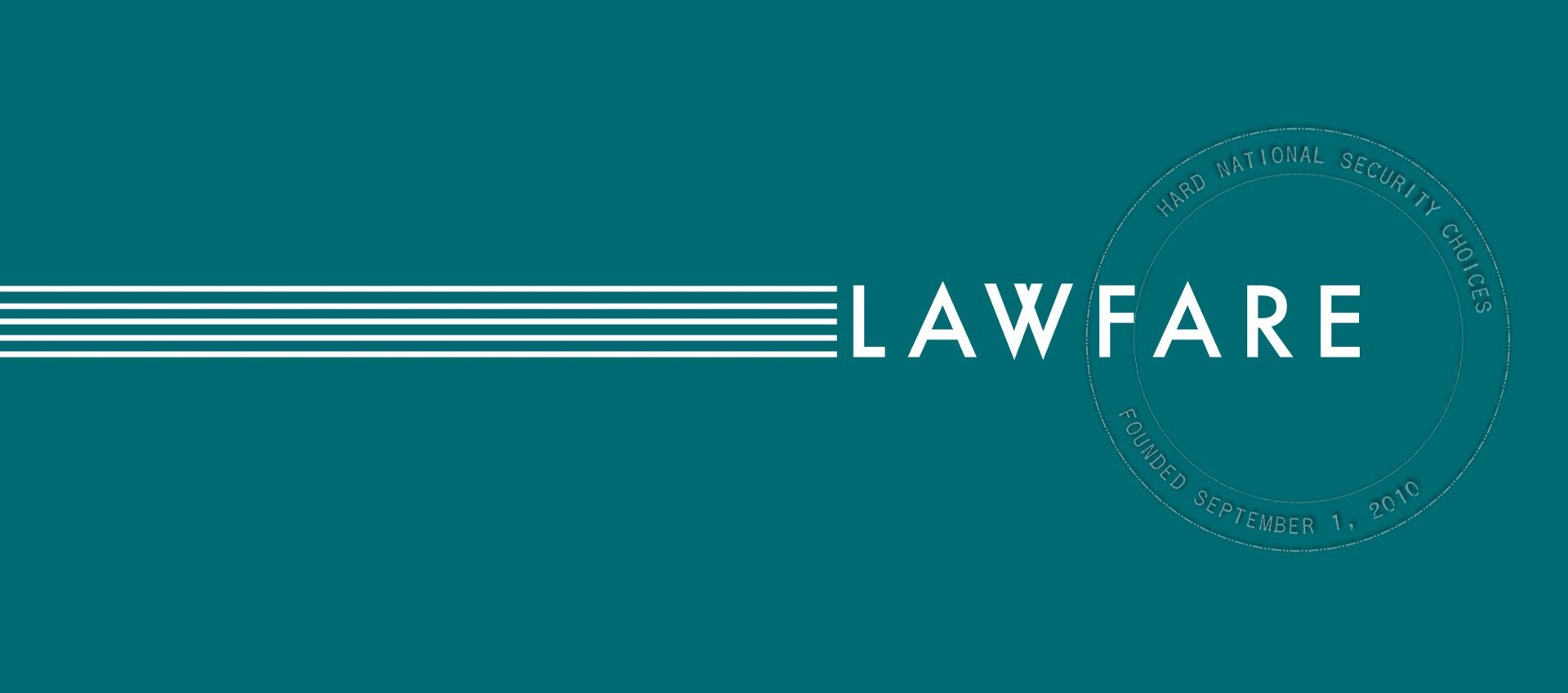Covering NSL Issues in First-Year Constitutional Law
Published by The Lawfare Institute
in Cooperation With

With the next semester quickly approaching, I'm going through the annual struggle to decide just how much I want to cover current (national security) events in my first-year Constitutional Law course. This is always difficult for me for several reasons, including (1) how jam-packed my syllabus already tends to be (I'm charged with covering virtually every major topic other than the First Amendment in a one-semester course); and (2) the fact that some of the most interesting contemporary national security law issues present classical constitutional law issues only at the margins (for example, @ WCL, we no longer consider constitutional criminal procedure issues part of the basic constitutional law curriculum, so there goes the public safety exception to Miranda, checkpoint searches, the statutory side of surveillance law, material witnesses, etc.).
With that in mind, I thought I'd describe my approach, and then encourage folks who have alternative ideas to e-mail me. So, below the fold, I briefly describe what I've covered in previous semesters:
The last time I taught the course (i.e., last spring), I covered post-9/11 national security issues in three different class sessions (as you can see from my syllabus, we have 39 sessions over the course of the semester):
- In Class 4, as part of our coverage of limits on the judicial power (itself part of a larger unit on the relationship between judicial review and judicial supremacy), I teach Boumediene, and the significance of its holding that the Suspension Clause serves (at least in some cases) as an external restraint on Congress's power over the jurisdiction of the lower federal courts.
- Last spring, the day I taught Chadha and the legislative veto (Class 25), I also gave the students materials on the Libya operations and the War Powers Resolution, taking advantage of the (fairly obvious) segue (the class took place on March 22, 2011--how's that for timing?). I'm inclined to make this a permanent addition, since there's such rich material there both on whether 1544(c) survives Chadha, and, if not, whether 1544(b) is an otherwise sufficient constraint on unilateral presidential warmaking. That said, I think this year I'm going to split the Youngstown class into two classes--one on Youngstown itself, and a second on application questions, including emergency powers, Dames & Moore, and Libya and the WPR as a case study... It fits better there, methinks.
- Finally, right after the fairly standard class on Youngstown and the separation of powers as a limit on executive power (Class 26), I do a standalone session on the separation of powers in the war on terrorism (Class 27), a class that focuses on Hamdi, footnote 23 from Hamdan, and the various iterations of the Commander-in-Chief override debate, including FISA/warrantless wiretapping, detention, and the torture memos.
Steve Vladeck is a professor of law at the Georgetown University Law Center. A 2004 graduate of Yale Law School, Steve clerked for Judge Marsha Berzon on the Ninth Circuit and Judge Rosemary Barkett on the Eleventh Circuit. In addition to serving as a senior editor of the Journal of National Security Law & Policy, Steve is also the co-editor of Aspen Publishers’ leading National Security Law and Counterterrorism Law casebooks.




